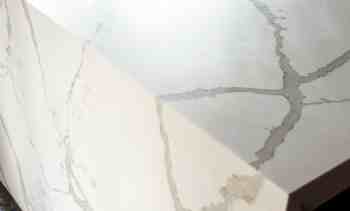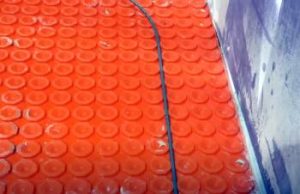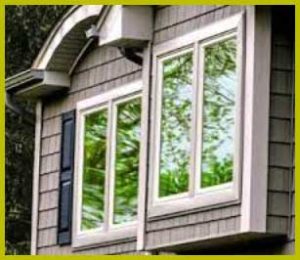If you’re in the market for new countertops or any other kind of surface, you’ve probably already heard of quartz. It’s a popular choice among homeowners and interior designers alike for its durability, beauty, and low maintenance. One brand that stands out is Pure Surfaces Quartz.
In this article, we’ll dive deep into Pure Surfaces Quartz reviews, discussing the pros and cons of this material, and answering some frequently asked questions.
The Pros: Why People Love Pure Surfaces Quartz

- 1. Aesthetically Pleasing
Pure Surfaces Quartz is known for its beautiful, natural appearance. With a wide variety of colors and patterns, it can easily mimic the look of natural stone like granite and marble.
Customers have praised the realistic look of this brand’s quartz, making it a top choice for those who want the look of natural stone without the hefty price tag.
- 2. Durability
One of the most significant advantages of Pure Surfaces Quartz is its durability. It’s engineered from natural quartz crystals and combined with resins, which makes it a strong and long-lasting material.
It’s resistant to scratches, cracks, and chips, which means your countertops will look great for years to come.
- 3. Low Maintenance
Another pro of Pure Surfaces Quartz is its low maintenance requirements. Unlike natural stone, which requires regular sealing, this material is non-porous and doesn’t need any special treatment.
It’s resistant to staining and bacterial growth, making it easy to clean with just a cloth and mild detergent.
- 4. Customization Options
Pure Surfaces Quartz offers a wide range of colors and patterns, allowing you to find the perfect match for your interior design.
Additionally, the material can be customized to fit any shape and size, making it a versatile option for various applications, such as countertops, backsplashes, and even flooring.
The Cons: What to Consider Before Choosing Pure Surfaces Quartz

- 1. Price
While Pure Surfaces Quartz is more affordable than natural stone like granite and marble, it is still considered a premium product. Its price point can be a deterrent for some homeowners, especially those on a tight budget.
However, when you consider the long-term benefits of durability and low maintenance, the investment can be well worth it.
- 2. Heat Sensitivity
Although Pure Surfaces Quartz is highly resistant to scratches and stains, it is not as heat-resistant as some natural stones. It’s essential to use trivets or hot pads to protect your quartz countertops from direct contact with hot pots and pans.
- 3. UV Sensitivity
Pure Surfaces Quartz is sensitive to UV rays, which means prolonged exposure to sunlight can cause the colors to fade over time.
If you’re planning to install quartz surfaces in an area with a lot of direct sunlight, consider using window treatments to minimize the potential for fading.
FAQs: Answering Your Quartz Questions
The best quality quartz is determined by factors such as purity of the quartz, the type of resins used, and the manufacturing process. Brands like Pure Surfaces Quartz, Caesarstone, and Silestone are known for their high-quality quartz products.
Pure Surfaces Quartz is among the most realistic quartz brands, with its wide range of colors and patterns that closely mimic natural stone. Other brands like Cambria and Caesarstone are also known for their realistic appearance.
Good quality quartz should have a consistent and uniform pattern, with no visible seams or irregularities. It should also feel smooth to the touch and have a polished finish. Additionally, high-quality quartz brands often offer warranties, which can provide peace of mind regarding the material’s longevity and durability.
Yes, quartz worktops are an excellent choice for many homeowners. They offer a wide range of benefits, including durability, low maintenance, and an attractive appearance. Quartz worktops are resistant to scratches, stains, and bacteria, making them a practical and stylish option for kitchens and bathrooms.
Quartz is typically classified into three grades: First Grade, Second Grade, and Third Grade.
First Grade quartz is the highest quality, offering a consistent pattern, color, and finish. It is made from the purest quartz crystals and high-quality resins, ensuring a durable and long-lasting product.
Second Grade quartz is still of good quality, but it may have slight inconsistencies in pattern and color. The manufacturing process may not be as precise, but the overall durability and appearance are still satisfactory for most applications.
Third Grade quartz is the lowest quality and is often more affordable. It may have noticeable inconsistencies in pattern, color, and finish, and may be less durable than higher grades.
The price of quartz can vary depending on factors like color, pattern, brand, and grade. Generally, more intricate patterns and rare colors tend to be more expensive, as they require a more complex manufacturing process. Some of the most expensive quartz options include those that closely resemble high-end natural stones like Calacatta marble or rare granite varieties. Additionally, top-quality brands like Pure Surfaces Quartz, Cambria, and Caesarstone tend to be priced at a premium due to their exceptional quality and reputation.
Conclusion
Pure Surfaces Quartz is a highly regarded quartz brand, offering a stunning range of colors and patterns that closely resemble natural stone. Its durability, low maintenance, and customization options make it a top choice for many homeowners. However, potential buyers should consider factors like price, heat sensitivity, and UV sensitivity before making a decision.
With this comprehensive analysis of Pure Surfaces Quartz reviews, you should have a better understanding of the pros and cons of this material, as well as answers to some common questions about quartz. Ultimately, the choice will come down to your personal preferences, budget, and design goals, but there’s no denying that Pure Surfaces Quartz offers an attractive and durable option for many homeowners.



